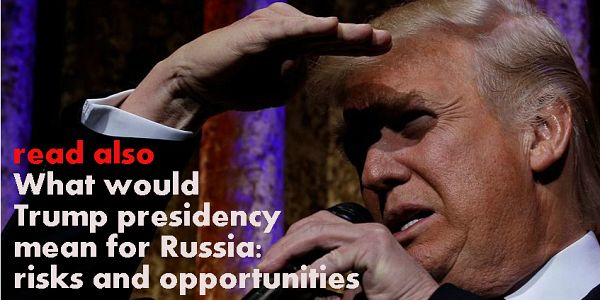The anxieties of Trump-Putin “bromance” may be premature, especially if the inaugural speech underlining American interests as paramount is any indication of the yet to be formulated U.S. foreign policy.
Nelli Babayan, Black Sea Fellow at FPRI and non-resident Fellow at the Transatlantic Academy
In a nutshell, the crisis in relations between Russia and the West is two-fold. First, there’s the Kremlin’s perception that the United States and Europe are set to undermine the survival of Putin’s regime. In return, the Kremlin has mobilized its own resources to undermine whomever it considers hostile in Europe and the United States. Second, there’s the clash of their visions for a specific group of states in between Russia and Europe: Armenia, Azerbaijan, Belarus, Georgia, Moldova, and Ukraine. Russia has considered American and European economic assistance and democracy promotion as threatening to its position in the neighbourhood.
As Donald Trump took office on January 20, celebrations were under way in Moscow in honour of the new president of the United States. In a cheerful atmosphere guests paid tribute to notorious cyberhacks by wearing Guy Fawkes masks and posed in front of matching paintings of President Trump, President Vladimir Putin and far-right French presidential candidate Marine Le Pen. President Trump’s campaign statements of “getting along” and “making a deal” with Putin were enough to worry US and European political elites traditionally critical of Russia’s actions in the region.
However, the anxieties of Trump-Putin “bromance” may be premature, especially if the inaugural speech underlining American interests as paramount is any indication of the yet-to-be formulated US foreign policy. Moreover, if his nominees for the Secretary of State, Ambassador to the United Nations, Defense Secretary and Treasury Secretary adhere to their statements made during confirmation hearings, relations with Russia will not involve succumbing to Putin’s will. Furthermore, an overly conciliatory approach to Russia may not sit well with Congressional Republicans who criticised Russia over its actions in Ukraine and readily imposed sanctions (after all, sanctions do not really hurt the US economy). On January 22 Democratic Senator Chuck Schumer said he would propose a bill supported by Republican Senators John McCain and Lindsey Graham that would limit President Trump’s ability to singlehandedly lift the sanctions.
 As for Russia, yes, Trump, who Putin once called “colourful”, is a better pick for the Kremlin than Secretary Hillary Clinton, who has pursued a harsher stance on Russia. Yet, it also does not mean that the Kremlin would readily welcome any policy coming from the White House. Instead, and as always, they would be assessed according to what the Kremlin considers Russia’s national interests.
As for Russia, yes, Trump, who Putin once called “colourful”, is a better pick for the Kremlin than Secretary Hillary Clinton, who has pursued a harsher stance on Russia. Yet, it also does not mean that the Kremlin would readily welcome any policy coming from the White House. Instead, and as always, they would be assessed according to what the Kremlin considers Russia’s national interests.
However, one thing seems to be clear. The United States is likely to be less involved in the area that Russia calls its Near Abroad and considers its historical sphere of influence, thus inadvertently easing the tensions. Recently also, President Barack Obama has suggested, these countries may not be a core interest for the United States, but they are for Russia.
Whether due to preference for a white male candidate, the prevalence of Russian media supporting Trump’s candidacy, or a hunch that Trump Administration would be less critical of democracy and human rights violations, many of post-Soviet leaders also welcomed his election. In addition, as more detailed consideration of these countries’ politics showed, Russia’s exploits would have been less likely if more of these countries’ elites were genuinely democracy-oriented or interested in the free-market competition proposed by the European Union’s trade agreement, rather than in maintaining oligarchic, monopolistic, or authoritarian practices.
So far Trump’s Administration has showed little or no interest in pursuing a globalist foreign policy through promotion of democracy or advancement of human rights. However, President Trump’s rhetoric of “America first” indicates that while he is not interested in getting involved in all the affairs of the world, he wants to maintain US dominance.
Yet, with the interests of the smaller countries in-between out of the way, it would be easier to re-engage (though not reset) with Russia and while maintaining sanctions, focus on countering terrorism, including cooperating with Russia in Syria against ISIS, nuclear arms control, and cyber security issues. In addition, establishing a regular presidential dialogue may help in alleviating the Kremlin’s perception (even if flawed) that the United States pursues regime change. It could also avoid pushing Russia closer to China.
At the same time, ongoing communication is likely to avoid further escalation and draw attention away from the continuing sanctions. This is not necessarily what the Trump Administration should do but what it is likely to do. The trick, of course is not to alienate European allies or undermine NATO’s position.
The views expressed in opinion articles published on euronews do not represent our editorial position











